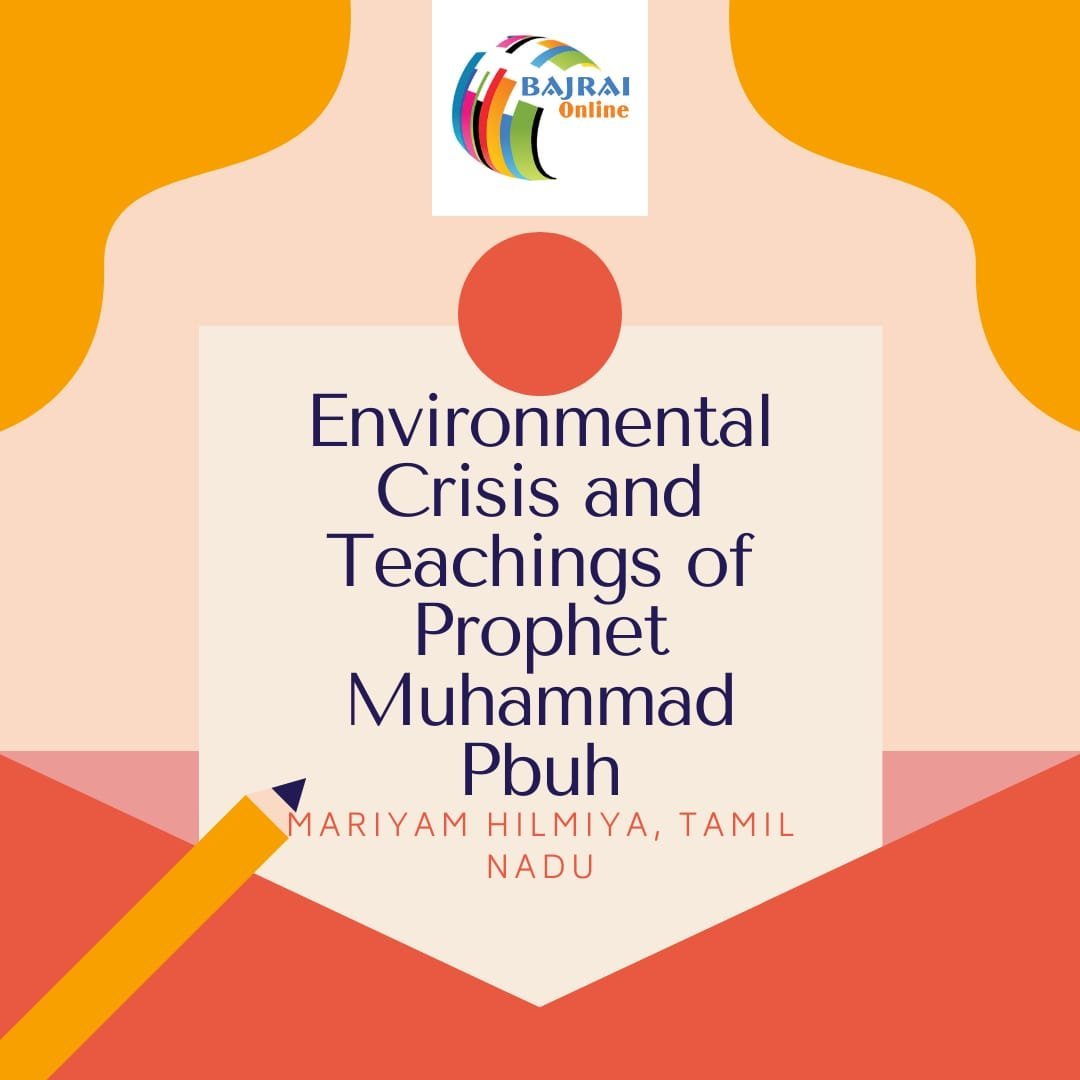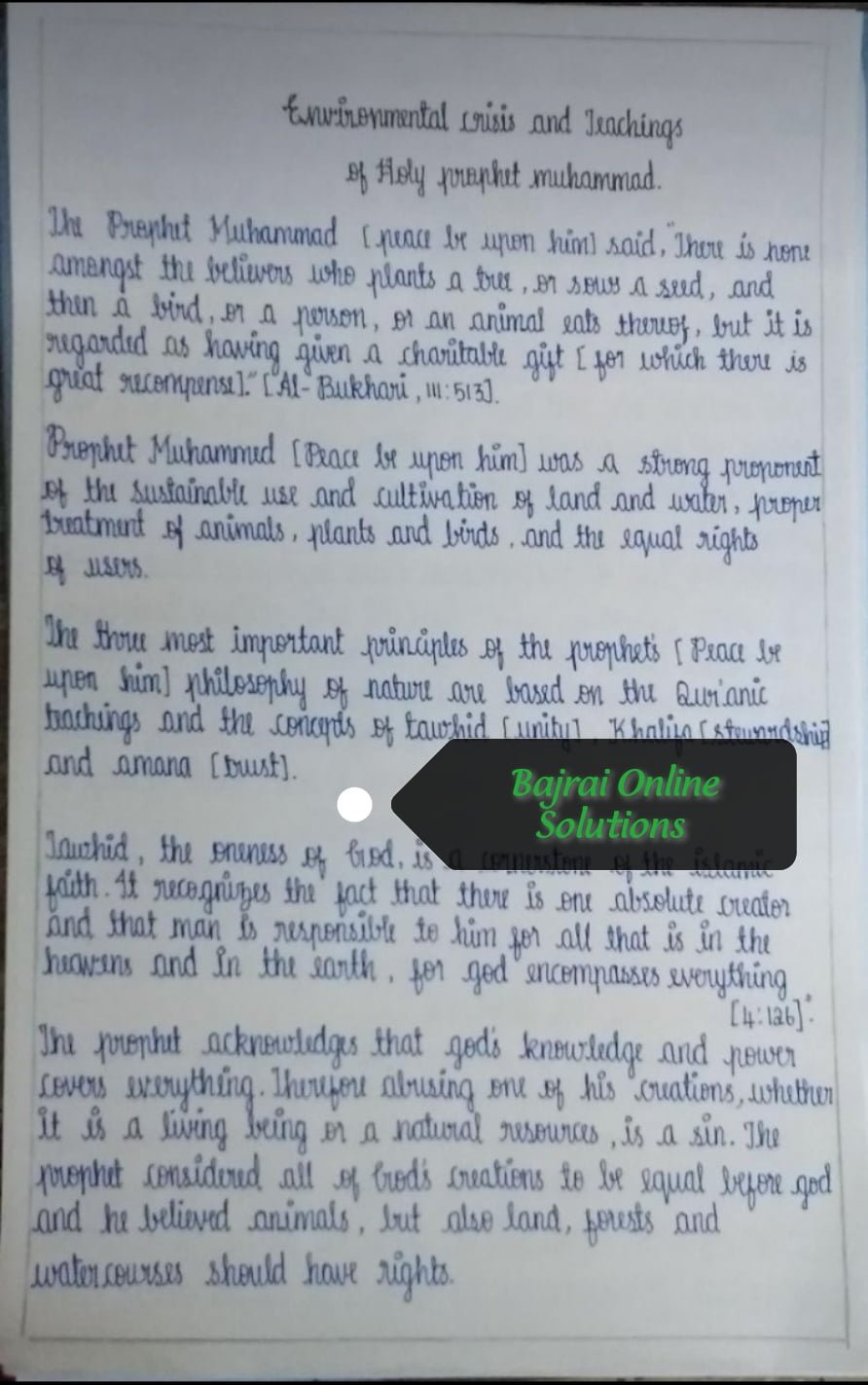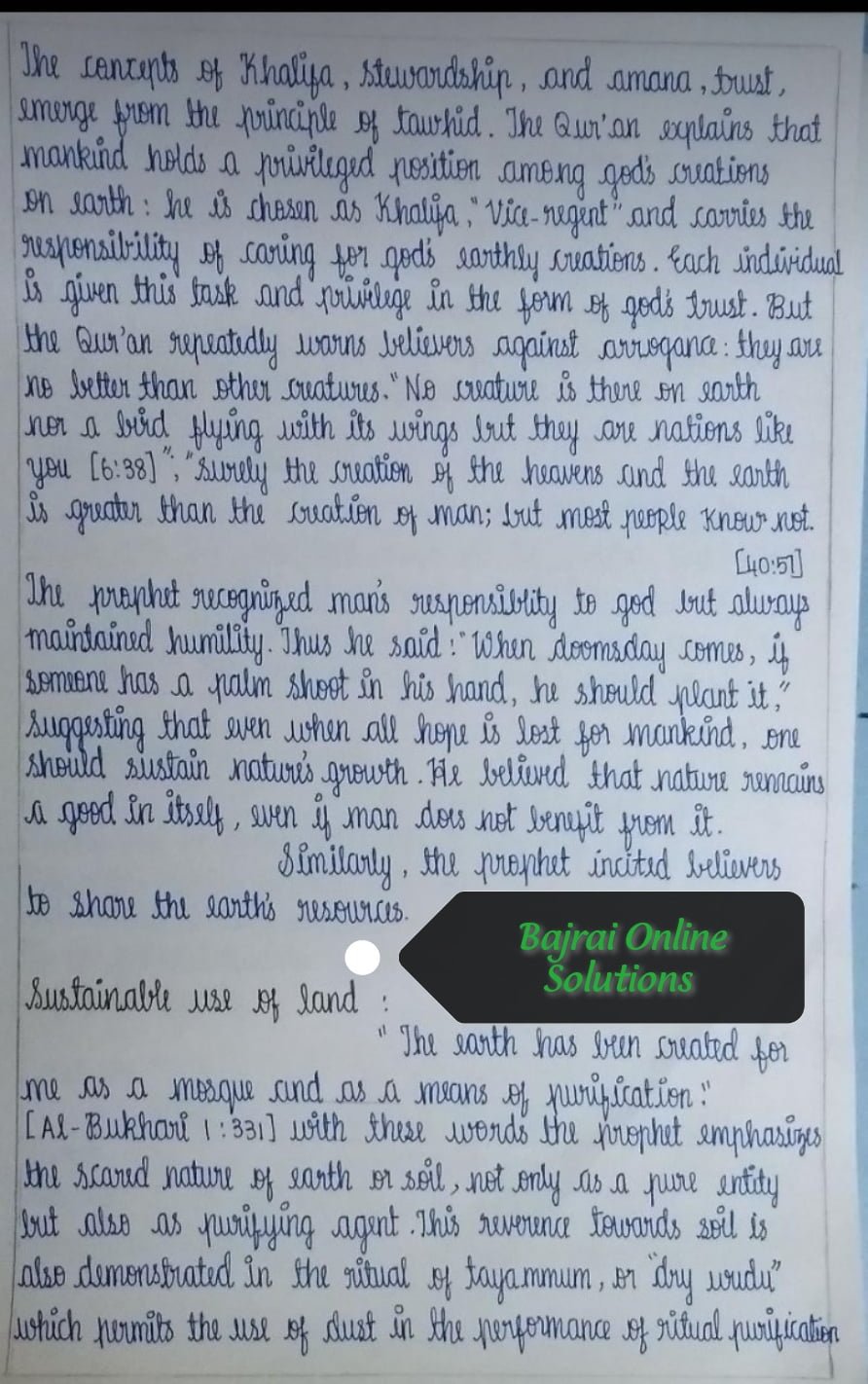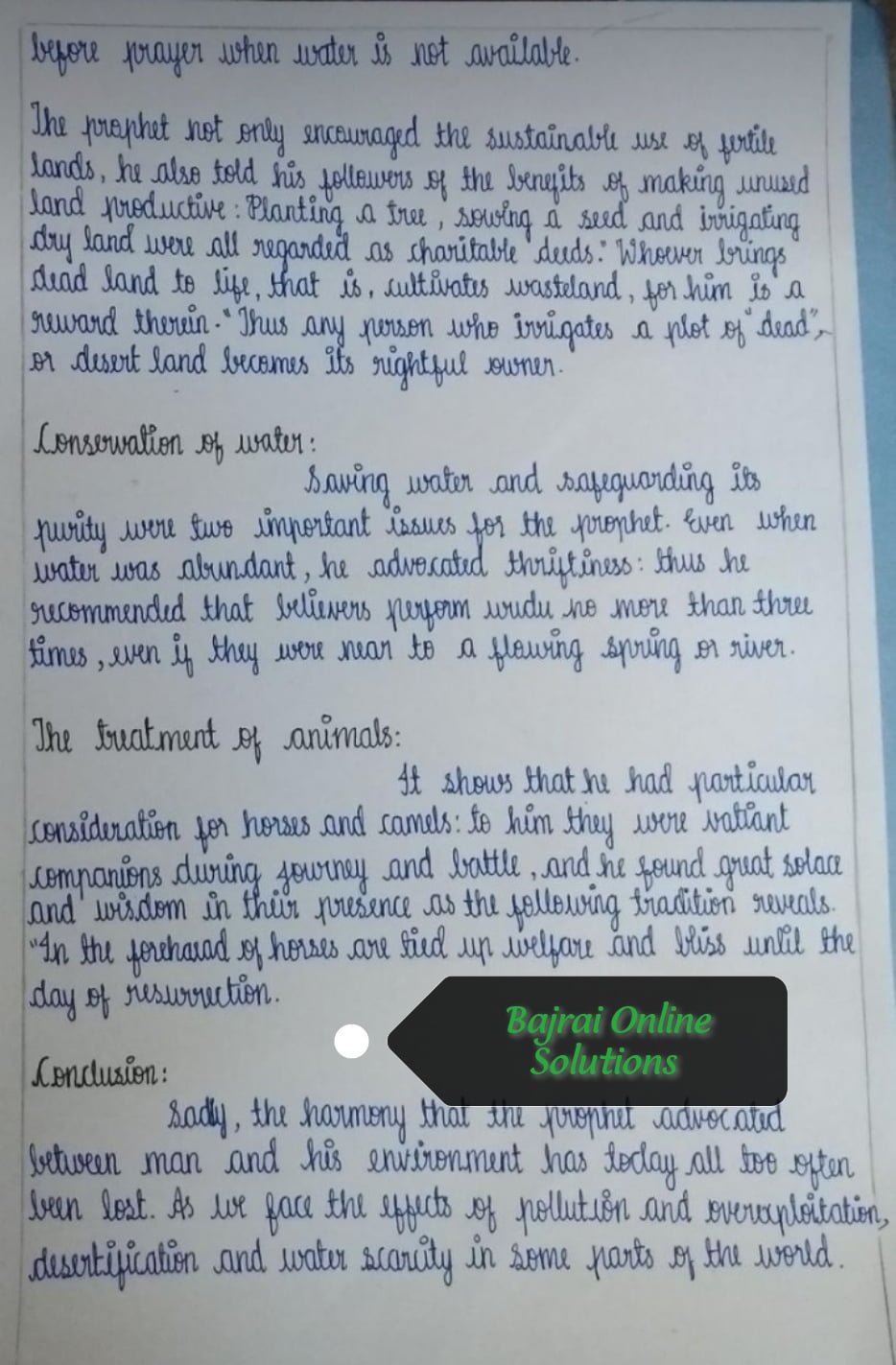Environmental Crisis and Teachings of Prophet Muhammad
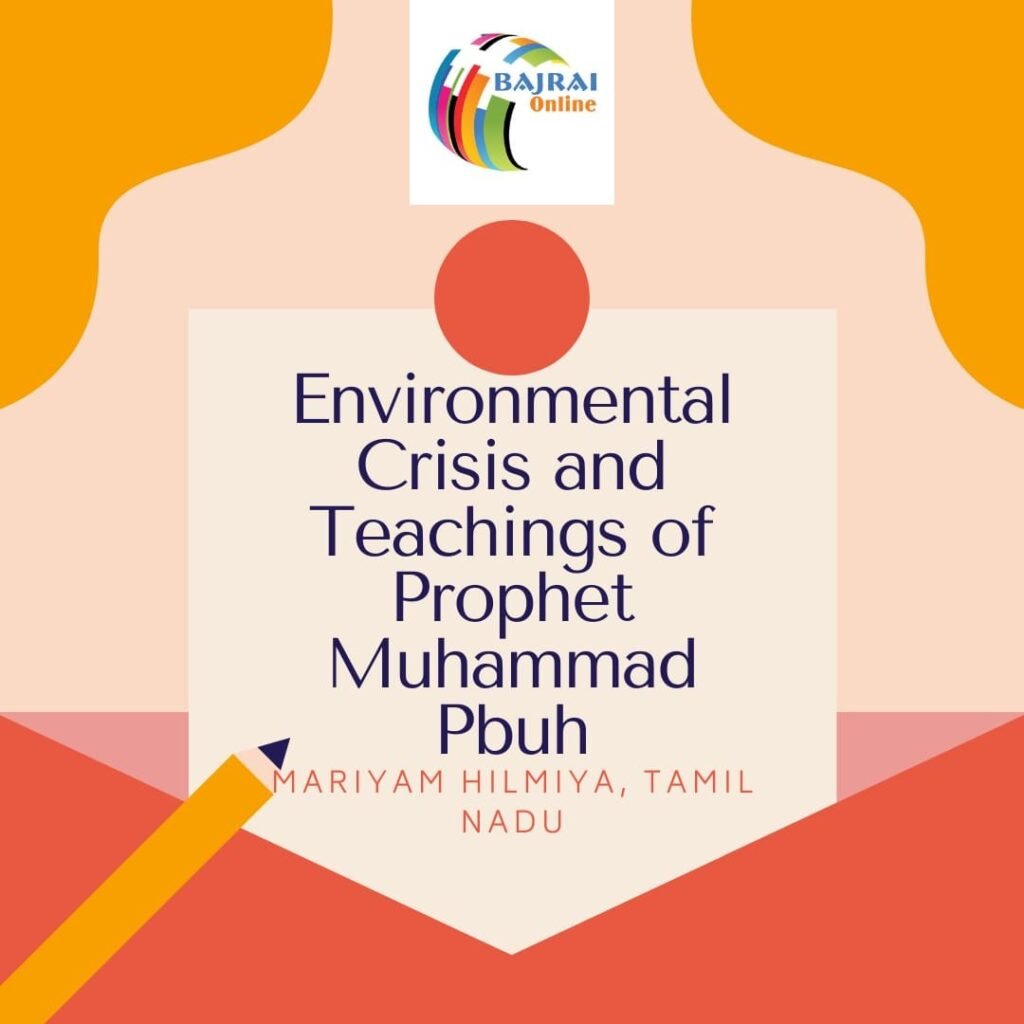
The Prophet Muhammad peace be upon him said:
“There is none amongst the believers who plants a tree or sows a seed and then a bird or a person or an animal eats thereof, but it is regarded as having given a charitable gift (for which there is great recompense.”
(Al – Bukhari III:513)
Prophet Muhammad Peace be upon him was a strong proponent of the sustainable use and cultivation of land and water, proper treatment of animals, plants and birds and the equal rights of users.
The three most important principles of the prophet’s Peace be upon him philosophy of nature are based on the Quranic Teachings and the concepts of Tawhid (unity), Khalifa(stewardship) and Amana (Trust).
Concept of Tawhid
Tawhid, the oneness of God, is a cornerstone of the Islamic faith. It recognises the fact that there is one absolute Creator and that man is responsible to him for all that is in the Heavens and in the earth, for God encompasses everything.
The Prophet acknowledges that God’s Knowledge and power covers everything. Therefore abusing one of His creations, whether it is a living being or a natural resources, is a sin. The Prophet considered all of God’s creations to be equal before God and he believed animals, but also land, forests and water courses should have rights.
Concept of Khalifa (Stewardship) and Amana
The concept of Khalifa, stewardship, and Amana (Trust), emerge from the principle of Tawhid. The Quran explains that mankind holds a privileged position among God’s creations on earth: he is chosen as Khalifa, “vice-regent” and carries the responsibility of caring for God’s earthly creations. Each individual is given this task and privilege in the form of God’s trust. But the Quran repeatedly warns believers against arrogance. They are no better than other creatures. “No creature is there on earth nor bird flying with its wings but they are nations like you. (6:38)
“Surely, the creation of the Heavens and the earth is greater than the creation of man, but most people know not. (40:51)
The Prophet recognized man’s responsibility to God but always maintained humility. Thus he said:
“When doomsday comes, if someone has a palm shoot in his hand, he should plant it,” suggesting that even when all hope is lost for mankind, one should sustain nature’s growth. He believed that nature remains a good in itself, even if man does not benefit from it.
Similarly, the Prophet incited believers to share the Earth’s resources.
Sustainable use of Land
Prophet Muhammad ??? ???? ???? ???? said:
“The earth has been created for me as a mosque and as a means of purification.” (Al Bukhari I :331)
With these words the Prophet Emphasizes the scared nature of Earth or soil, not only as a pure entity but also as purifying agent. This reverence towards soil is also demonstrated in the ritual of TAYAMMUM, or “dry wudhu” which permits the use of dust in the performance of ritual purification before prayer when water is not available.
The Prophet not only encouraged the sustainable use of fertile lands, he also told his followers of the benefits of making unused land productivr: Planting a tree, sowing a seed and irrigating dry land were all regarded as charitable deeds
“Whoever brings dead land to life, that is, cultivates wasteland, for him is a reward therein.”
Thus any person who irrigated a plot of dead or desert land becomes its rightful owner.
Conservation of Water
Saving water and safeguarding it’s purity were two important issues for the Prophet. Even when water was abundant, he advocated thriftiness : thus he recommended that believers perform Wudu no more than three times, even if they were near to a flowing spring or river.
The Treatment of Animals
It shows that he had particular consideration for horses and camels: to him they were vatiant companions during journey and battle, and he found great solace and wisdom in their presence as the following tradition reveals. In the forehead of horses are tied up welfare and bliss until the day of resurrection.
Conclusion:
Sadly, the harmony that the Prophet advocated between man and his environment has today all too often been lost. As we face the effects of pollution and over exploitation, desertification and water scarcity in some parts of the world.
Written by Mariyam Hilmiya, 10th Standard, Tamil Nadu

